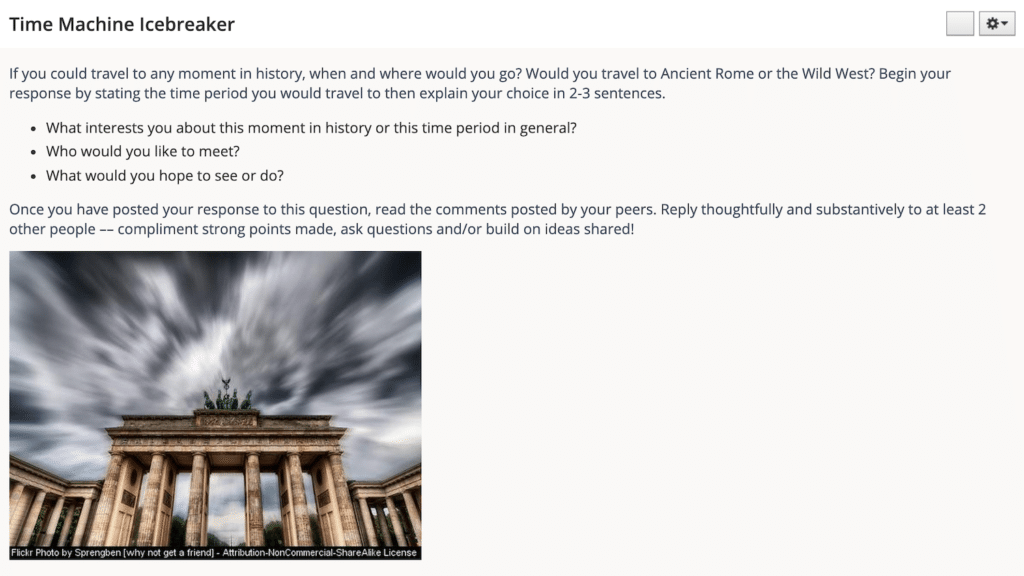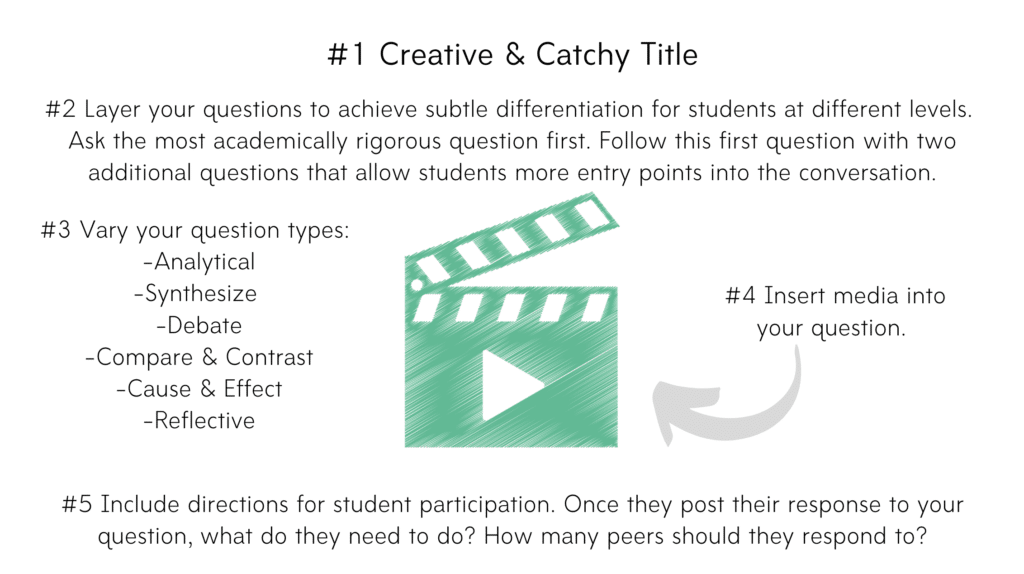As teachers move classes online and utilize online tools and resources to engage students in remote learning, it’s essential to add social elements to our online courses. This has a couple of powerful benefits. First, students who feel they are part of a learning community online are less likely to feel alone during this time of social isolation. Second, teachers who invest the time and effort needed to develop a sense of community online will have more success engaging students who are learning remotely.
A simple strategy is to use online discussions to post icebreaker-style discussion questions. Online discussions are a staple of online learning, and the value of discussions can hardly be overstated. They allow students to:
- Articulate their ideas
- Ask questions
- Learn from different perspectives
- Make connections
- Think critically about new information and ideas
- Receive validation from their peers
However, online academic discussions are more successful when students have had the chance to develop their social presence online. The social presence is the student’s ability to project their true selves in an online environment, perceive their classmates as real people, and form meaningful relationships online. This is easier to do if students have opportunities to get to know one another online.
Online icebreakers, or non-academic discussion questions, can help students get to know one another and develop their social presence. Below is an example of an icebreaker discussion question I use to get students chatting informally at the start of a course.

Below are some ideas for fun icebreaker-style discussion questions.
- If you could have lunch with a famous person, who would you choose and why? In your response, include three questions you would like to ask this person.
- If you could have a superpower, which would you choose and why?
- Describe your perfect day from beginning to end. How would you spend your time?
- If you were stranded on a desert island, which three objects would you bring with you and why?
- Post three statements (two truths and one lie) then try to guess each other’s lie.
- Would you rather [one option] or [second option]? Explain your choice.
- What is your favorite television show to binge-watch? Why?
- If you could receive a famous award in your lifetime, what would it be and why?
- If Spotify asked you to design a playlist for teens who are stuck at home, what would you call your playlist, and which 15 songs would you include on it?
- If you could travel anywhere in the world, where would you go and why?
When teachers design any online discussion question–academic or informal, I encourage them to include the following:
- Creative and catchy title
- Questions that encourage more detailed responses or provide more than one entry point into the conversation
- Media (image, photo, video)
- Instructions for engaging with their peers once they have posted their response to the discussion question.

Not only do informal conversations build community, but they can help students feel connected to their peers while learning remotely. If students feel connected to a learning community online, they are more likely to engage in online tasks and be respectful in their interactions with each other.
Teachers can also use FlipGrid for these informal conversations. Students can record videos responding to discussion prompts and then comment on each other’s videos.


One response
Thank you for the idea of having an online ice breaker. I am a school psychologist and I want my students to interact with each other, although it is remotely. Thank you for the following examples: 1. Describe your perfect day from beginning to end. How would you spend your time? 2. If you were stranded on a desert island, which three objects would you bring with you and why?3. Post three statements (two truths and one lie) then try to guess each other’s lie. These will get my students to interact with each other.